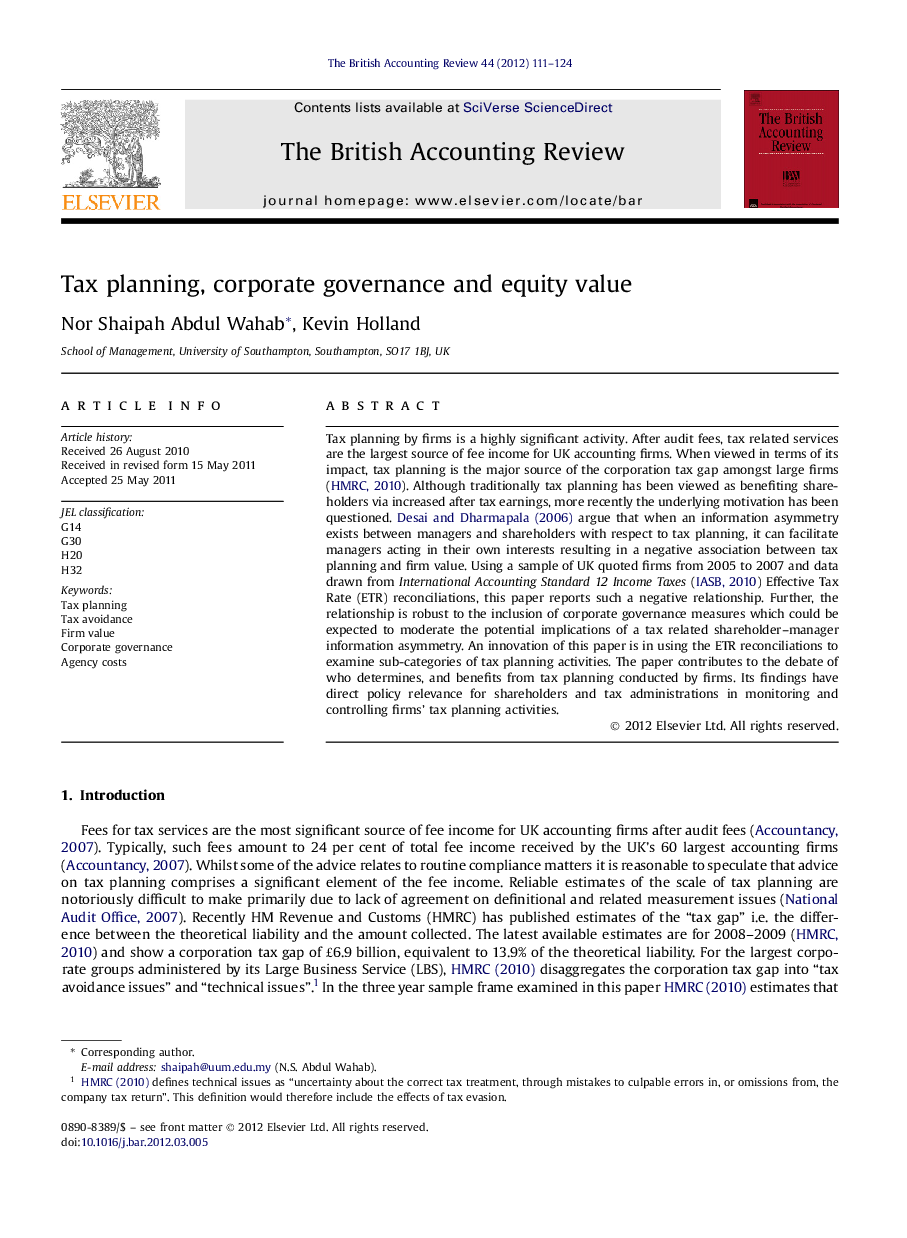| کد مقاله | کد نشریه | سال انتشار | مقاله انگلیسی | نسخه تمام متن |
|---|---|---|---|---|
| 1004042 | 937730 | 2012 | 14 صفحه PDF | دانلود رایگان |

Tax planning by firms is a highly significant activity. After audit fees, tax related services are the largest source of fee income for UK accounting firms. When viewed in terms of its impact, tax planning is the major source of the corporation tax gap amongst large firms (HMRC, 2010). Although traditionally tax planning has been viewed as benefiting shareholders via increased after tax earnings, more recently the underlying motivation has been questioned. Desai and Dharmapala (2006) argue that when an information asymmetry exists between managers and shareholders with respect to tax planning, it can facilitate managers acting in their own interests resulting in a negative association between tax planning and firm value. Using a sample of UK quoted firms from 2005 to 2007 and data drawn from International Accounting Standard 12 Income Taxes ( IASB, 2010) Effective Tax Rate (ETR) reconciliations, this paper reports such a negative relationship. Further, the relationship is robust to the inclusion of corporate governance measures which could be expected to moderate the potential implications of a tax related shareholder–manager information asymmetry. An innovation of this paper is in using the ETR reconciliations to examine sub-categories of tax planning activities. The paper contributes to the debate of who determines, and benefits from tax planning conducted by firms. Its findings have direct policy relevance for shareholders and tax administrations in monitoring and controlling firms’ tax planning activities.
Journal: The British Accounting Review - Volume 44, Issue 2, June 2012, Pages 111–124